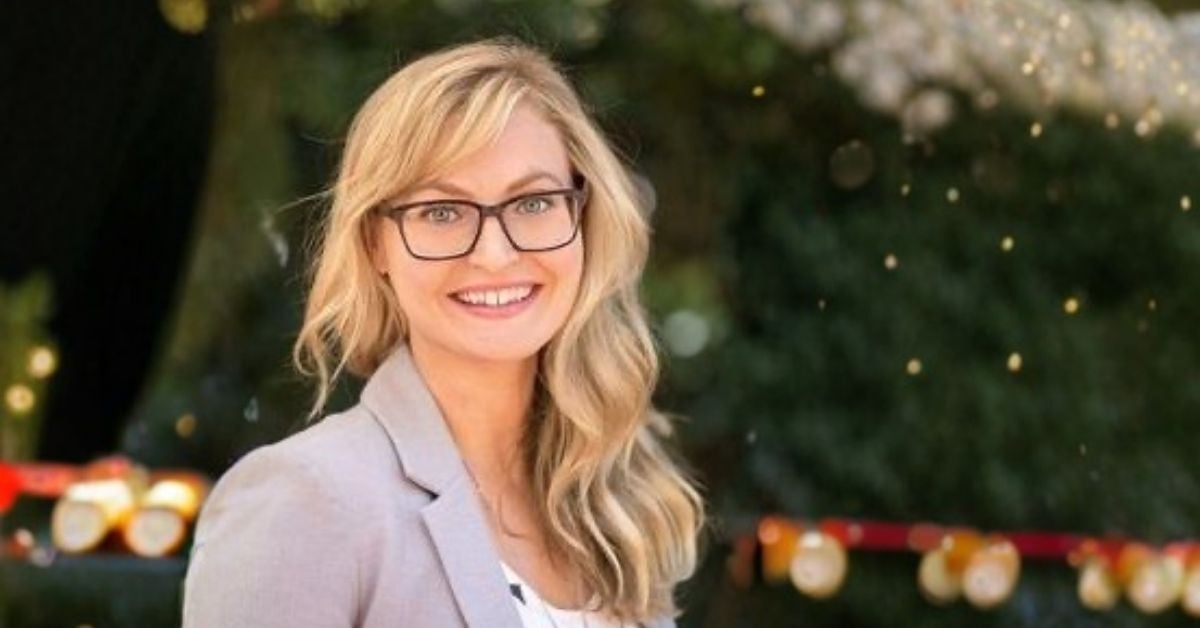
Faculty Profile: Megan Speciale, PhD
Megan Speciale, PhD, a PAU faculty member since 2015, specializing in LGBTQ and sexuality wellness counseling, and Chair of Admissions for the Master of Arts Degree in Counseling, has been elected Chair of the Faculty Senate for the 2022-23 academic year. She will replace Dr. Donna Sheperis, who has helmed the Senate for the last three years.
“To be elected as the new chair is surreal because I’ve looked up to our previous chairs so much,” says Dr. Speciale. “This is such an incredible opportunity to work with and advocate for my fellow faculty members, especially those coming to the University with multiple minoritized identities.”
At the national level, Dr. Speciale serves as an ACA Governing Council representative for the Association for Counseling Sexology and Sexual Wellness, which is a new organizational affiliate of the American Counseling Association. She is also an associate editor for the Journal of Counseling Sexology and Sexual Wellness and the editor-in-chief for The Thoughtful Counselor Podcast.
Humble Beginnings
Dr. Speciale identifies as a member of the LGBTQ community and having grown up in a conservative, working-class, agricultural suburb of Houston, Texas, she often felt out of place. In high school, she was one of the few who advocated for feminist ideals and LGBTQ rights, and she quickly recognized the need for comprehensive and accessible sex education.
“I didn’t receive any sex education growing up and this set me on course for my career,” says Dr. Speciale. “In high school, I visualized my dream job as a sex educator who empowered young people to have autonomy, respect, self-esteem, and confidence in themselves as sexual and relational people.”
Dr. Speciale was the first in her family to attend college. She was determined to turn her dream into a reality and, as a high school student, sought out mentors to assist her with her college applications. She was accepted at Texas State University where she majored in psychology, then pursued a master’s degree in Clinical Mental Health Counseling at Texas A&M University-Corpus Christi. She earned her Ph.D. in Counselor Education at the University of New Mexico, where she co-founded the UNM LGBTQ Counseling Center.
Along with being a professional counselor, Dr. Speciale became a counselor educator and joined the PAU faculty in 2015. Having expertise in the intersection of sexual, mental, and relational health, she taught courses in human sexuality, substance abuse counseling, and group counseling, as well as delved into research related to LGBTQ issues, sexual and gender identity, sexual shame, and the efficacy of sexuality counseling.
“One of my key areas of research is to study how counselors are trained related to sexual health,” says Dr. Speciale. “Are they prepared to talk about sex with their clients? If so, how do they become prepared and what can educators do to strengthen their competency in being able to discuss topics of sex and intimacy without projecting their own biases, particularly with members of marginalized sexual communities?”
Cultural Competency through Cultural Humility
As a core faculty member of PAU’s master’s degree in counseling, Dr. Speciale is instrumental in furthering the program’s social justice initiatives and commitment to diversity, equity, inclusivity, and belonging
Dr. Speciale explains that PAU’s program is different from other counselor education programs in that it offers excellent education and clinical training, as well as provides ample opportunities to cultivate self-awareness and cultural competency.
According to the American Counseling Association, cultural competency is defined as:
- understanding the complexities of diversity and multiculturalism in the counseling relationship
- recognizing the negative influences of oppression on mental health and wellbeing
- understanding individuals in the context of their social environment
- integrating social justice advocacy into various modalities of counseling
“So much of the stress, depression, and anxiety that people of color face are rooted in their day-to-day experiences of discrimination. But, as counselors, we can reframe these challenges as side-effects of living in a system that discriminates, marginalizes, and diminishes people’s identities,” says Dr. Speciale. “We can say to our clients, ‘You’re on the receiving end of these long-standing, structural biases, and what you’re feeling is a natural response to being oppressed.’ This simple reframe can be very healing and empowering.”
One of the first things Dr. Speciale teaches to new students in the program is that cultural competence does not have an end date. She offers other, less finite, terms to convey this concept, such as cultural responsiveness, cultural sensitivity, and cultural humility. She encourages her students to reflect on what privileges and oppressions they’ve experienced throughout their lifetimes and how those experiences have shaped the way they view the world and how they view others.
“It’s important to note that the pursuit of cultural competence is a life-long process and it’s centered on the concept of cultural humility,” says Dr. Speciale. “We will never fully understand the total experience of others, but the process of gaining a better understanding starts with us understanding ourselves and how we perceive the world.”
Dr. Speciale also hopes that her students leave the program with a sense of cultural curiosity and an understanding that their own cultural worldview is only one in a sea of many intersectional worldviews. She hopes to cultivate in her students the humility to recognize that their worldview both shapes the way they understand the world and complex problems, as well as informs how they interact with people.
“There’s no ‘right’ way to be in the world,” says Dr. Speciale. “Attached to humility is having a sense of compassion for experiences different than your own and being able to create space in your framework to accommodate and affirm that other people’s experiences of suffering and joy are just as valid as yours.”




